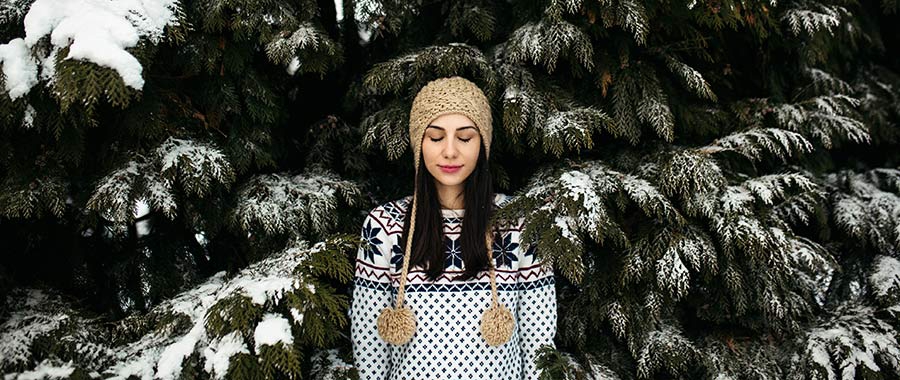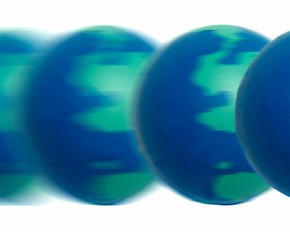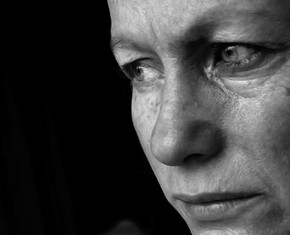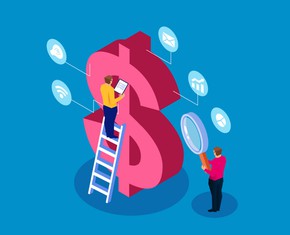The views expressed in our content reflect individual perspectives and do not represent the authoritative views of the Baha'i Faith.
There can be a lot of “soul” in a cup of coffee and a slice of cake; especially when they’re made with love.
For me, it’s hard to beat sitting inside on a cold winter’s day, or even a hot summer’s day, with those two treats, trying to reach that perfect balance on the palate between sweet and bitter. Unfortunately, a very sad thing has happened to me: I’m now sensitive to gluten, and I think coffee is the culprit, so I’m now off both of these soulful sources of comfort.
It wasn’t easy to pinpoint the trigger for my digestive issues, and even when I did, there was a time when I kept indulging in coffee and wheat, though it was more the convenient piece of toast than cake that I clung to. The digestive discomfort continued while I kept savoring my poisons. Yes, I willingly harmed myself, even while knowing the consequences.
While still undergoing this battle, it helped me see the similarity in our spiritual struggles.
Countless things harm the soul, yet we continue to do them. Lying, cheating, backbiting, judging, berating: all these things punish the soul and stunt its development and growth. On the other hand, all the potential perfections within us are the very attributes of the soul, and by developing and enacting them, we elevate our spiritual core. The Baha’i teachings say it this way:
Existential rewards consist in the virtues and perfections that adorn the human reality. For example, man was immersed in darkness and becomes luminous; he was ignorant and becomes informed; he was heedless and becomes aware; he was asleep and is awakened; he was dead and is quickened to life; he was blind and begins to see; he was deaf and begins to hear; he was earthly and becomes heavenly; he was material and becomes spiritual. Through these rewards he is reborn in spirit, is created anew … – Abdu’l-Baha, Some Answered Questions, newly revised edition, pp. 257-258.
Yet, knowing this truth is not enough to shake off bad habits. Why is this? It probably comes down to two things: a lack of insight and a weakness of will.
Of the former, Baha’u’llah wrote: “… man should know his own self and recognize that which leadeth unto loftiness or lowliness, glory or abasement, wealth or poverty.” – Tablets of Baha’u’llah, p. 34. If we don’t know ourselves, we live on autopilot; we act unconsciously—and who, then, is in the driver’s seat? Our lower selves.
The comedian Jerry Seinfeld joked about this all-too-human foible. He said that he doesn’t get enough sleep because he is a “night guy” and doesn’t consider himself a “morning guy.” “What about getting up after five hours of sleep? Oh, that’s morning guy’s problem.”
The same lack of foresight probably plays out when we fail to consider the future consequences of our present actions, both in the world around us and within—as I’ve been learning.
Of course, sometimes we know very well what negative effects our actions may have, but we do them anyway. The reason is that we do not have the self-control to put the brakes on. We live at the mercy of the fears and desires of our lower selves. This is why the Bahai teachings stress the importance of trying our best to be our best, to live as much as possible in the realm of our higher and more spiritual reality:
Strain every nerve to acquire both inner and outer perfections, for the fruit of the human tree hath ever been and will ever be perfections both within and without. – Baha’u’llah, from a tablet to an individual Baha’i.
The rewards we receive for being true to ourselves are somewhat akin to those old experiments in which children were given the option of having one cookie right away or two a little later. The main difference is that the spiritual reward we receive for ignoring our fickle desires is far more than doubled.
What really struck me about all this is that I have to make a choice between two diametrically opposed things: coffee or health, triviality or divinity. I can’t have both:
O My Servant! Abandon not for that which perisheth an everlasting dominion, and cast not away celestial sovereignty for a worldly desire. This is the river of everlasting life that hath flowed from the well-spring of the pen of the merciful; well is it with them that drink! – Baha’u’llah, The Hidden Words, p. 35.
In the case of my body, either I choose coffee or I choose physical health. For others it may be a different food or drink that they have to relinquish in order to be healthy. In the same way, either I choose spiritual growth or I choose material attachments. I’ve learned that I truly can’t have my cake and eat it too!
It isn’t something to ponder at all. The right decision is obvious, for if we do pursue our negative inclinations, then we do so in exchange for our remoteness from God. By succumbing to our baser natures, we relinquish our right to enjoy the divine bounties.
It’s quite a foolish thing to do, but we do it all the time. We yell at others in traffic even though it will only make us angry. We over-indulge in the worlds of consumerism and mass media, and perpetually find ourselves feeling lost and empty. What’s important is that we do not sabotage ourselves by pretending not to know about the consequences of our thoughts and actions.
When setting out to make a change in our lives, at first it may seem that we have to sacrifice something, but we have to remember the true meaning of sacrifice: to give up something lower for something higher.
















Comments
Sign in or create an account
Continue with Googleor